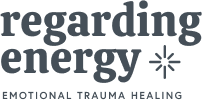Healing from Family Trauma: Navigating the Journey Towards Wholeness
Family trauma can be an incredibly difficult experience to navigate. Whether it's the result of abuse, neglect, or dysfunction within the family unit, the effects of family trauma can linger long after the events themselves have passed. Healing from family trauma is a complex and challenging process, but with the right support and tools, it is possible to find a path toward healing and wholeness.
Here are some steps you can take to heal from family trauma:
Acknowledge the trauma: The first step towards healing from family trauma is to acknowledge that it happened. This may seem obvious, but it can be difficult to accept the reality of what has happened, especially if you have been minimizing or denying the impact of the trauma. It's important to recognize that what you experienced was traumatic and that it has had a profound impact on your life.
Seek support: Healing from family trauma is not something you should try to do alone. It's important to seek out support from friends, family, an energy healer, and/or a therapist who can help you process your emotions and work through the trauma. An energy healer can help you to rebalance your energy while a therapist can provide a safe and non-judgmental space to explore your experiences and help you develop coping strategies for managing the impact of the trauma.
Practice self-care: Taking care of yourself is an important part of the healing process. This may include practicing self-compassion, setting healthy boundaries, and engaging in activities that bring you joy and fulfillment. It's also important to prioritize your physical health by getting enough sleep, eating nutritious food, and engaging in regular exercise.
Learn about trauma: Understanding how trauma affects the mind and body can help you make sense of your experiences and develop effective coping strategies. Consider reading books or attending workshops on trauma and its effects.
Practice mindfulness: Mindfulness practices, such as meditation and deep breathing, can help you cultivate a sense of calm and ease during times of stress and anxiety. These practices can also help you develop a greater awareness of your emotions and the ways in which they impact your thoughts and behaviors.
Build a support network: Healing from family trauma can be a long and challenging process, and it's important to have a strong support network to help you through it. Consider joining a support group or connecting with others who have experienced similar trauma.
Forgive, but don't forget: Forgiveness can be an important part of the healing process, but it's important to remember that forgiveness does not mean forgetting. It's possible to forgive someone for their actions while still acknowledging the harm they caused.
Healing from family trauma is a deeply personal journey, and it may take time to find the right path forward. Be patient with yourself and seek out the support you need to navigate this challenging process. With time and effort, it is possible to heal and move forward toward a brighter future. If you are interested, book a 15mins free consultation with me to see if am I able to help you to clear some family trauma.

